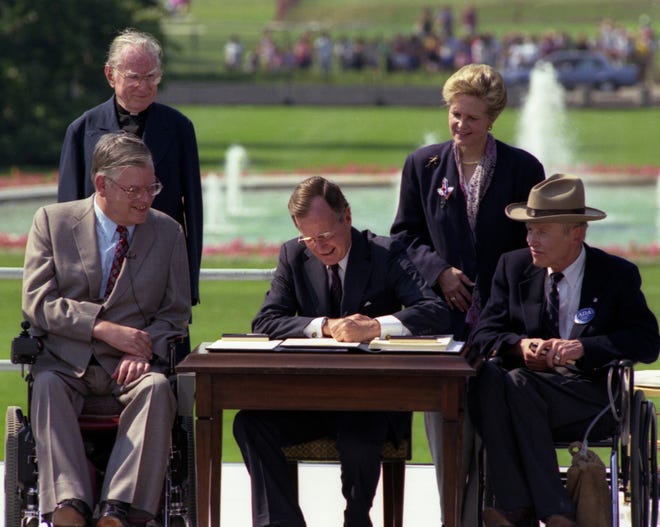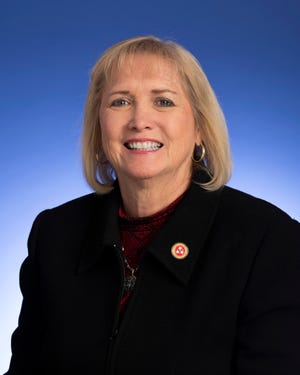In this time of social distancing, we are getting a taste of what life was like for people living with disabilities before the passage of the ADA.
On July 26, the Americans with Disabilities Act will celebrate its 30th anniversary. The bipartisan legislation, which was signed into law by President George H.W. Bush, is remarkable for its grassroots organization, its sophistication, its doggedness and its tireless optimism.

The ADA works to increase the inclusion of people with disabilities in all aspects of community life. The landmark civil rights law protects people who have a physical or mental disability that substantially limits a major life activity. It requires that government, schools, businesses and public spaces provide reasonable accommodations to people with disabilities so they can have equal access to these areas of life that are so important to all of us. In other words, it opens the world to people with disabilities, gives them hope for their future and, in turn, enriches the lives of everyone they touch.

By breaking down barriers to employment, transportation, public accommodations, public services and telecommunications, the ADA enables individuals with disabilities to lead fuller, more productive lives. Since its passage, millions of Americans with disabilities have been able to get a job to fulfill their dreams and support themselves and their families. The act says that they can’t be ignored and that individuals with disabilities have lives worth living.
People with disabilities are fellow Tennesseans and fellow Americans. They do not live in spite of their disabilities, but live with them. When you judge someone for their diagnosis, you miss out on their abilities, beauty and uniqueness.
Pandemic should teach us empathy
In this temporary time of social distancing, we are getting a taste of what life was like for people living with disabilities before the passage of the ADA. In many ways it still is. Instead of a virus that keeps us from going to public places, imagine it is simply a step or curb to the entrance or just the attitudes of our fellow community members that let us know we are not welcome.
People with disabilities were, and continue to be, excluded from the everyday privileges that most of us take for granted. Can you imagine what it would be like living your entire life being left out of the community you live in? We should walk away from our experience with the pandemic with an enhanced sense of empathy for the people the ADA was intended to serve.
Sertoma Center focuses on clients’ abilities
In my 24 years at the helm of the Sertoma Center serving adults with intellectual disabilities, I was able to celebrate the unique skills and talents of the individuals we served and to focus on their abilities – not their disabilities. In the end, they are no different from you or me; they just have different skills, talents and abilities. I was blessed to be a voice for many of those who had no voice. I realized I was, and still am, advocating for more than just accommodations, but rather for their quality of life.
The ADA is a living document, not an artifact. Thirty years after it was signed, the work to help people disabilities live fully included lives continues. Things have gotten a lot better, but it’s fair to state that the act is far from achieving full implementation. As a community and a state, we need to live up to the ADA to integrate people with disabilities into society.
Let’s continue to do what we can to achieve this goal so that everyone in our community can thrive. We will be better for it in the end. I hope you stand with me in this effort. Together we can make a difference.
Becky Duncan Massey, a Republican from Knoxville, represents District 6 in the state Senate.
